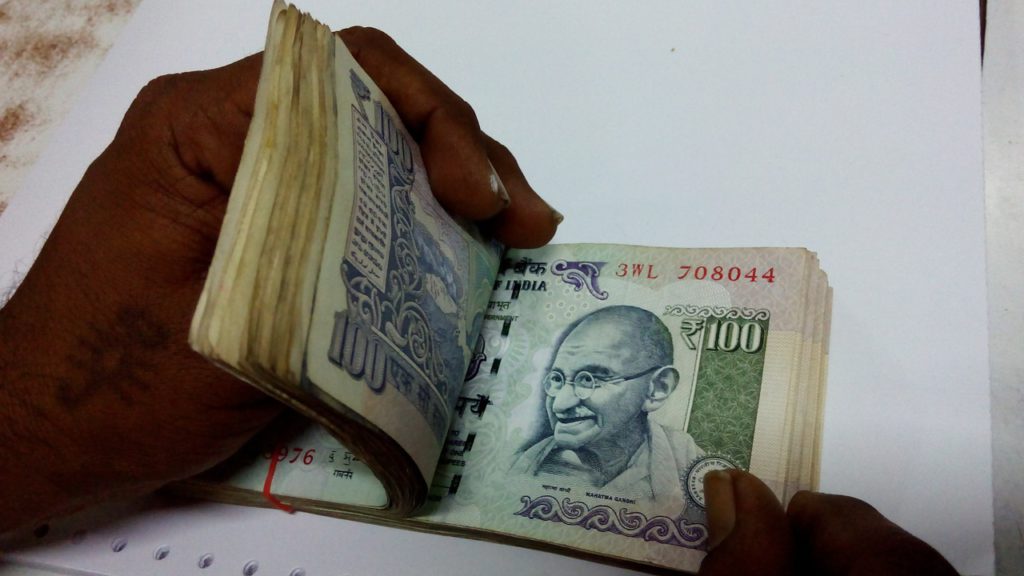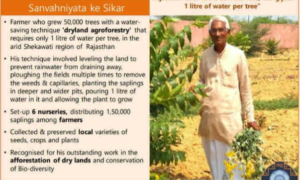Ease of doing business: A political game changer?

In the last couple of years, the political landscape of Indian democracy has witnessed dramatically changes. One can safely say that almost all political parties have been a part and parcel of the economic reforms implementation.
 With the release of the ‘ease of doing business’ report in the post-Diwali days by the central government, the political-economy aspect of governance in Indian democracy has once again become focal point of discussion.
With the release of the ‘ease of doing business’ report in the post-Diwali days by the central government, the political-economy aspect of governance in Indian democracy has once again become focal point of discussion.
When the India took a big leap forward in terms of economic reforms way back in 1991, the basic objective was to get rid of red-tapism, excessive and unwanted control and other such problems.
This process was supported and supplemented with another big reform in administration machinery, brought out through the Second Administrative Commission Report in 2005.
Now, as Indian democracy has experienced 25 years of journey since 1991, it’s important to focus on the latest emerging patterns and trends in governance.
In this context, the ‘ease of doing business’ report brings out the dynamics of reforms in all states in the last one year (2015-2016) based on 340-point business reform action plans and their implementation.
In the last couple of years, the political landscape of Indian democracy has witnessed dramatically changes. One can safely say that almost all political parties have been a part and parcel of the economic reforms implementation.
In this backdrop, the competition among the states to project themselves as ‘reforms oriented’ and ‘business friendly’ has emerged as the one of highlights of Indian federal political discourse.
Going by the statistics, the states and Union Territories have implemented 7,124 reforms as part of their healthy competition among them.
The states have implemented hitherto difficult 48 reforms processes and policies like tax reforms, single window clearance, environment reforms and dispute settlement mechanisms among other things.
What is significant here is the ‘national implementation average’ which figures at 48.93%. This can be heralded as the biggest achievement made by the Indian democracy ever since the implementation of the reform process in 1991.
It also highlights the consensus to carry forward the reforms process and its irreversibility among the ideologically distant political outfits across the ideological spectrum of Indian politics.
The achievement of passage of the good and service tax (GST) in Parliament by the central government is certainly a major milestone towards creating a hassle-free and conducive environment for the entrepreneur class.
The healthy competition among the states has brought in many changes in the political-economy front.
Looking at the top five states who provide the highest ease of doing business, the top slots are bagged by two southern states being ruled by regional parties – Telegu Desam Party in Andhra Pradesh (98.78%) and Telengana Rastra Samiti in Telengana (98.78%).
 The third, fourth and fifth positions are occupied by Gujarat (98.21 %), Chattishgarh (97.32%) and Madhya Pradesh (97.01%) respectively – all ruled by BJP.
The third, fourth and fifth positions are occupied by Gujarat (98.21 %), Chattishgarh (97.32%) and Madhya Pradesh (97.01%) respectively – all ruled by BJP.
The other notable feature which has emerged with the latest ranking is Odisha which is among the top performing states and has been ruled by another regional party Biju Janata Dal.
The interesting feature with respect to Indian politics in this context is that regional political parties have been the biggest beneficiaries and implementers of reforms process over the years.
The ease of doing business also put the states various categories in terms of their performances.
The categorization like Leaders (states implementing 90-100% reforms); Aspiring Leaders (implementing 70-90% reforms); Acceleration Required (implementing 40-70% reforms) and Jump Start Needed (implementing 0-40 per cent reforms) has recast the dynamics of Indian federal politics into a different yet new format.
The joint winner of top slot, namely Andhra Pradesh and Telengana have implemented innovative schemes. For example, the Telengana government has initiated a dedicated system which is known as Telengana State Industrial Project Approval and Self Certification System.
It provides clearance within a stipulated time of a fortnight. Similarly, Andhra Pradesh’s assurance of clearance in 21 days emerges as another policy master-stroke.
Prime Minister Narendra Modi intends to take and place India among the top 50 countries having robust ‘ease of doing business’ environment.
For this, astute political leadership with vision along with shaking off the policy paralysis holds the key for future reforms initiatives.

(The author is a policy analyst and can be reached at [email protected])












































